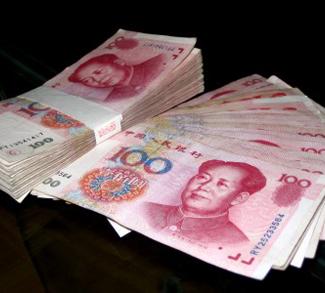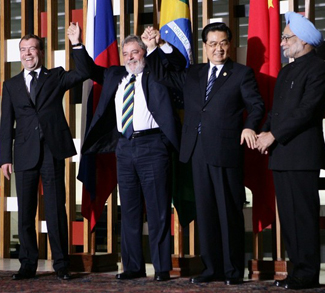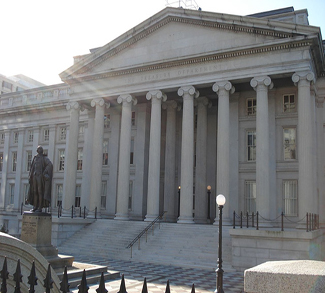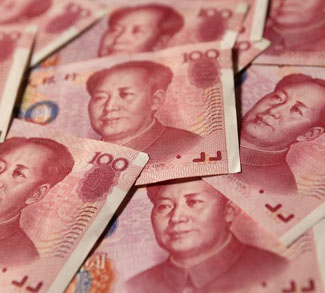Summary
US Treasury Secretary Timothy Geithner’s recent announcement that the US is postponing its official report on China’s currency is being hailed in the mainstream western media as a diplomatic reprieve to entice Beijing to revalue its yuan (renminbi) and normalise bilateral trade. This is not the case.
Analysis
The US currency appraisal was due on the 15 April and was expected to confirm months of increasingly strident accusations in the US media that China is a “chronic currency manipulator”. Allegedly, Beijng is undervaluing the yuan by as much as 20 per cent of its real value against the US dollar, which is giving Chinese exports to the US an unfair advantage. This, in turn, is hampering US exports and adding to America’s burgeoning trade deficit and sluggish economic recovery – allegedly.
As Bloomberg News put it: “Geithner is betting international diplomacy will work better than US pressure to get China to strengthen the yuan.”
Elsewhere in the mainstream US media, there seems to be now an outbreak of diplomatic peace, with talk of relations “calming down” between Washington and Beijing after a series of bitter disputes – disputes, it has to be said, that were sparked by unilateral US actions, such as a massive military sales deal with Taiwan, trade tariffs against Chinese goods and a diplomatic smack in the face when President Barack Obama received the Tibetan dissident leader, the Dalai Lama.
But Geithner’s latest “diplomatic” overture is less to do with the yuan and “normalising bilateral trade” and more to do with US efforts to pressure China to relent on a fourth round of tougher United Nations’ sanctions against Iran over its nuclear research. China is the only member of the UN Security Council that has explicitly refused to consent to further sanctions – thus presenting a crucial stumbling block to the US in its efforts to isolate and weaken the Islamic Republic. Again, the hidden agenda within that hidden agenda is less to do with an “Iranian nuclear threat” and more to do with the US engineering regime change in Tehran to one that would be subservient to Washington’s geopolitical control of the Middle East and beyond.
US Secretary of State Hillary Clinton gave notice of the intensifying US campaign during a speech on 22 March to the American Israel Public Affairs Committee in Washington when she called for “biting sanctions” with “painful consequences” and noted that “more work has to be done” on China’s position [1].
Subsequently, Obama has said that the US wants to see sanctions against Iran “within weeks, not months”.
Geithner’s postponement of the day of reckoning for China over its currency also means postponement (for now) of what would have been undoubtedly an escalation in US trade protectionism – an escalation that would throw a spanner in the works of Chinese economic growth. No matter that such an incendiary and, according to Goldman Sachs’ chief Asian economist [2], unjustified currency assessment by the US would have precipitated a trade war and plunged the world and US economy into the abyss. The faltering US empire has moved beyond rationale thought and normalcy. The crazed, implicit message to China would seem to be: “Follow our agenda on Iran or we will light this Mother touchpaper” – even if that does bring about a global economic collapse.
Geithner’s diplomatic blowing out of the match (for now) can be seen as but one step in a series of choreographed moves to lever China towards tightening the noose on Iran.
As recently as 18 March, the Financial Times reported that UN Security Council “disunity” with China was undermining plans for US-inspired sanctions against Iran.
But then, on 31 March, the FT reported that “Beijing agrees to talks on Iran sanctions”. On 1 April, according to the same paper, Iran’s top nuclear negotiator Saaed Jalili met with Chinese officials to lobby for China “to hold firm” in its opposition to further UN sanctions. However, tellingly, it is noted in the media that Chinese officials are no longer reiterating the previous Beijing line that sanctions against Iran would be “fundamentally wrong”.
The next day, 2 April, Obama is reported by the BBC to have made an hour-long telephone call to China’s President Hu Jintao to “stress the importance of working together to ensure that Iran lives up to its obligations [over its alleged nuclear research]”.
The same day, it is reported that President Hu will now be going to a summit in Washington on 12-13 April to discuss nuclear terrorism – a U-turn on previous statements that the Chinese leader would not be attending that event. The attendance by Hu is seen as a major boost to legitimising the US conference agenda. Or, put another way, the threatened Chinese absence would have been an embarrassing snub to Washington’s geopolitical designs.
Given this “breakthrough” in US-China relations, the following day, 3 April, Geithner announces the delay in Washington’s verdict on the yuan. While the myopic western media hail Giethner’s move as a stepping down in US-China tensions over bilateral trade, the choreographed quid quo pro is rather more accurately seen as a stepping up of US belligerence towards Iran. Or to turn Von Clausewitz on his head: “The continuation of [US-China currency] politics is but war by other means”.
Sources:
[1] http://www.globalresearch.ca/index.php?context=va&aid=18297




